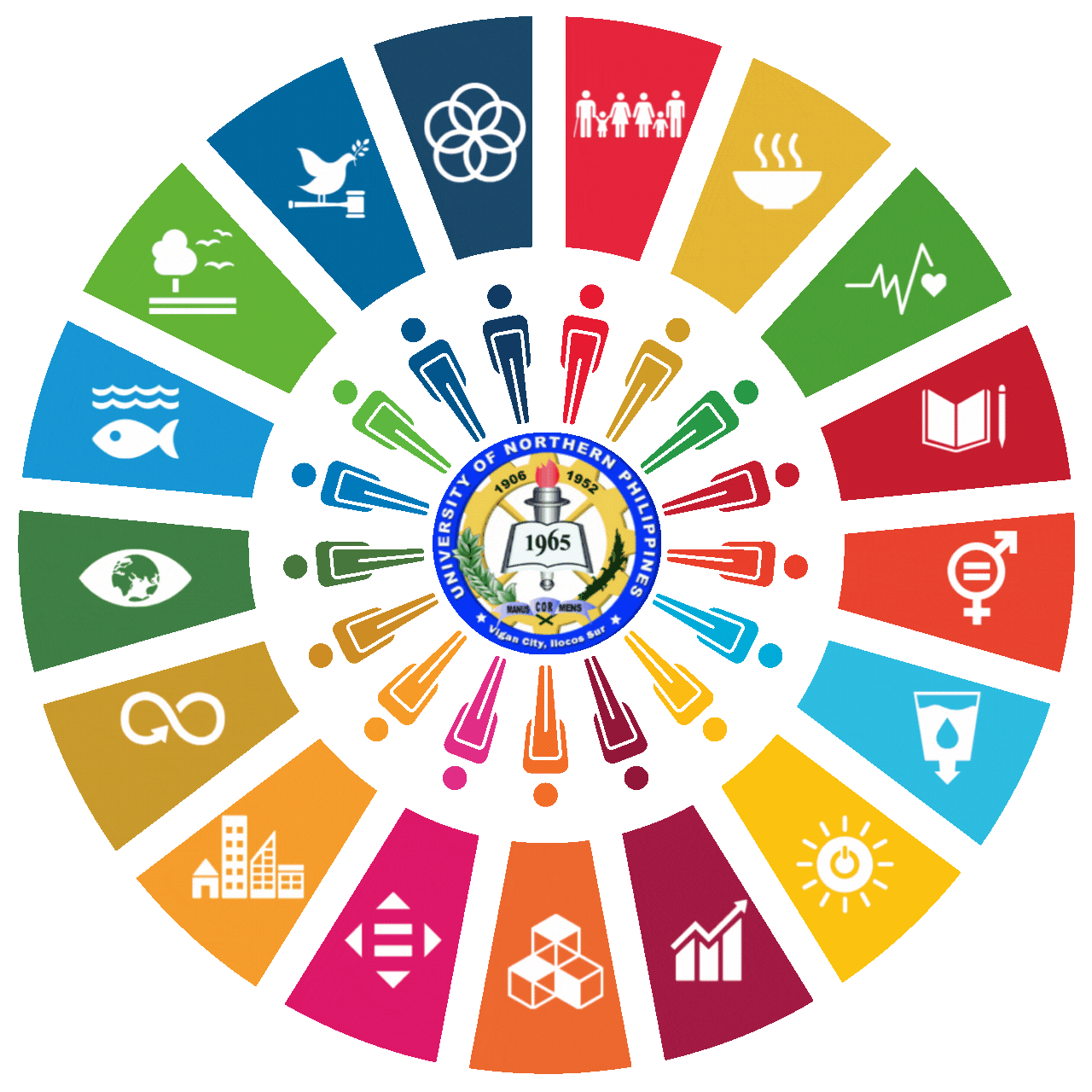

SDG 2 - ZERO HUNGER
The University of Northern Philippines (UNP) affirms a strong commitment to Sustainable Development Goal 2: Zero Hunger through various initiatives that align with the goal’s targets.
Description: The College of Business Administration and Accountancy organized a skills training workshop on meat processing for community members. This program provides individuals with practical knowledge and hands-on skills, empowering them to start small food businesses or find employment in the food industry. This initiative aims to increase the income and productivity of small-scale food producers.
Description: The College of Health Sciences conducted an extension activity focused on improving product labeling and packaging for a seaweed-based 'pokpoklo' ice cream. This program supports local producers by helping them develop a marketable product, thereby increasing their income and ensuring the quality and safety of their food item.
Description: The College of Teacher Education conducted training on practical house-wiring, which, while not a direct food-related program, is tied to the broader goal of improving community livelihoods. By equipping community members with technical skills, the program enables them to find better employment, increase their income, and thus improve their food security and living conditions. This aligns with strengthening the capacity of small-scale producers.
Description: The College of Criminal Justice Education conducted a medical mission that included a feeding program. This activity aims to address immediate food needs and promote improved nutrition within the community. By providing direct access to food and health services, the program helps reduce hunger and malnutrition in vulnerable populations.
Description: The College of Medicine, in partnership with the Ilocos Sur Medical Society (ISMS) and the Rotary Club, initiated a feeding program. This activity targets specific nutritional needs within the community, particularly in schools. By providing food, the program works to combat malnutrition and promote the well-being of the beneficiaries.
Description: Five graduate students from the Master of Arts in Technology and Livelihood Education (MATLE) program successfully passed the National Competency Assessment (NC II) in Agricultural Crops Production. This achievement demonstrates the program's commitment to excellence in agricultural education, which directly contributes to the advancement of sustainable agriculture. By training highly skilled educators and practitioners, UNP helps enhance agricultural productivity.
Description: The College of Medicine and the CAS-Department of Mathematics and Natural Sciences, in collaboration with the Rotary Club of Vigan and other partners, conducted a feeding program. The initiative provided food and monitored the physical health of nutritionally-challenged elementary school pupils aged 6–11 for over 150 days. This program directly addresses hunger and malnutrition in children.
Description: The College of Hospitality and Tourism Management (CHTM) organized a workshop on making traditional delicacies like puto and bibingka. This initiative revives cultural traditions while providing participants with practical food production skills. It promotes local food security and offers an opportunity for a new source of income.
Description: The University Research and Development Office's (URDO) Mushroom Research and Development Center (MRDC) conducted a research dissemination in Suyo, Ilocos Sur. The event aimed to share innovative findings in mushroom cultivation, promoting sustainable and resilient agricultural practices. By providing this knowledge, the university helps local farmers increase their productivity and enhance food security.
Description: The Department of Mathematics and Natural Sciences (DMNS) launched a "ChristMATH Tutorial through Pinoy Games" at an elementary school. This initiative aims to enhance the arithmetic skills of struggling pupils. By strengthening a child's foundational education, particularly in math and science, this program indirectly supports long-term food security by enabling them to better understand agricultural science and technology in the future. It addresses the education needed to combat malnutrition and food insecurity.




















